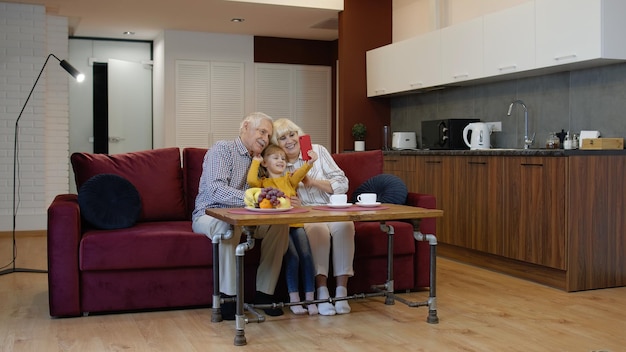Discover Lesser-Known Government Benefits for Seniors

Don’t overlook these lesser-known government benefits for seniors, including assistance with healthcare costs, housing, food, and utilities, that can significantly improve their quality of life and financial stability.
Many seniors may be unaware of the various government benefits available to them. Don’t overlook these lesser-known government benefits for seniors, which can provide much-needed financial assistance and improve their overall well-being. These programs can help with everything from healthcare expenses to housing and food costs.
Untapped Resources: Government Programs You Should Know
Navigating the world of government assistance can be daunting. However, several programs exist specifically to support seniors. This section will highlight some often-overlooked resources that can make a significant difference in your financial and overall quality of life.
Supplemental Security Income (SSI)
SSI is a federal program that provides monthly payments to adults and children with a disability or limited income and resources. Many seniors may qualify, even if they receive Social Security benefits.
The Medicare Savings Program
This program helps people with limited income and resources pay for Medicare costs. There are different levels of assistance based on income and assets.
- Qualified Medicare Beneficiary (QMB) Program: Helps pay for Medicare Part A and B premiums, deductibles, and coinsurance.
- Specified Low-Income Medicare Beneficiary (SLMB) Program: Helps pay for Medicare Part B premiums.
- Qualified Individual (QI) Program: Helps pay for Medicare Part B premiums.
These programs can significantly reduce your healthcare expenses, making medical care more affordable.
Understanding these lesser-known programs can open doors to financial relief and improved healthcare access for seniors.
Housing Assistance: More Than Just Public Housing
Affordable housing is a major concern for many seniors. While public housing is well-known, other programs can offer valuable assistance. These programs can help you find safe and affordable places to live.

Section 202 Supportive Housing for the Elderly Program
This HUD program provides funding for the construction and rehabilitation of housing for low-income seniors. Rent is typically subsidized, making it more affordable.
Rural Housing Assistance
The USDA offers programs to help seniors in rural areas obtain affordable housing. These programs may include loans, grants, and rental assistance.
- Rental Assistance Programs: Helps cover a portion of your monthly rent.
- Home Repair Loans and Grants: Provides funding to repair or upgrade your home.
- Subsidized Housing: Offers reduced rental rates in designated rural housing complexes.
Exploring these housing options can help seniors secure stable and affordable living arrangements, reducing financial stress and improving their quality of life.
These programs can provide seniors with a safe and comfortable place to call home, regardless of location.
Nutrition Programs: Beyond Food Stamps
Ensuring access to nutritious food is crucial for senior health. While the Supplemental Nutrition Assistance Program (SNAP), formerly known as food stamps, is widely known, other programs can provide additional support. These resources ensure seniors have access to healthy meals and essential nutrients.
Senior Farmers’ Market Nutrition Program (SFMNP)
SFMNP provides low-income seniors with coupons that can be exchanged for fresh fruits, vegetables, honey, and herbs at farmers’ markets, roadside stands, and community supported agriculture programs.

Meals on Wheels
This program delivers nutritious meals to seniors who are homebound or have difficulty preparing their own meals. It also provides a friendly check-in, which can be especially important for those who live alone.
- Nutritious Meal Delivery: Provides balanced meals to seniors unable to cook for themselves.
- Friendly Visit: Offers social interaction and a safety check for isolated seniors.
- Special Dietary Accommodations: Caters to specific dietary needs and restrictions.
These programs ensure that seniors have access to wholesome meals, contributing to their overall health and well-being.
These nutrition programs offer more than just food; they provide a lifeline for seniors struggling to maintain a healthy diet.
Utility Assistance: Keeping the Lights On
Paying utility bills can be a significant burden for seniors on fixed incomes. Several programs can help with these expenses, ensuring that seniors can afford essential services like heating and electricity. These programs provide critical support to help seniors manage their utility costs.
Low Income Home Energy Assistance Program (LIHEAP)
LIHEAP helps low-income households with their heating and cooling costs. Eligibility requirements and benefit amounts vary by state.
Weatherization Assistance Program
This program helps low-income homeowners and renters reduce their energy consumption by making their homes more energy efficient.
- Home Energy Audits: Evaluates energy efficiency and identifies areas for improvement.
- Insulation Upgrades: Installs insulation to reduce heat loss and energy consumption.
- Heating System Repairs: Provides repairs and replacements for inefficient heating systems.
These programs can significantly reduce your utility bills, making it easier to afford other essential expenses.
Utility assistance programs can provide a much-needed cushion for seniors struggling to keep up with rising energy costs.
Healthcare Beyond Medicare: Additional Support Systems
While Medicare provides essential healthcare coverage, it doesn’t cover everything. Several other programs can help seniors with additional healthcare needs, ensuring comprehensive care and support. These programs offer additional layers of support for seniors’ healthcare needs.
Medicaid
Medicaid provides healthcare coverage to low-income individuals and families, including seniors. It can cover services that Medicare doesn’t, such as long-term care.
Programs for All-Inclusive Care for the Elderly (PACE)
PACE provides comprehensive medical and social services to frail seniors who are eligible for both Medicare and Medicaid. The goal is to help seniors remain in their homes and communities as long as possible.
- Comprehensive Healthcare: Provides a wide range of medical services, including primary care, specialty care, and hospital care.
- Social Services: Offers social support, such as transportation, meals, and recreational activities.
- Home Care: Provides in-home assistance with daily tasks, such as bathing and dressing.
These programs can fill in the gaps in Medicare coverage, providing seniors with comprehensive healthcare support.
Exploring healthcare options beyond Medicare can provide seniors with a more complete and well-rounded healthcare experience.
Tax Relief: Reducing the Burden
Property taxes and income taxes can be a significant burden for seniors on fixed incomes. Several states and localities offer tax relief programs specifically designed to help seniors manage these expenses. These programs can alleviate financial strain and ease the burden of taxes.
Property Tax Exemptions
Many states offer property tax exemptions for seniors. These exemptions can reduce the amount of property tax you owe each year.
Senior Tax Credits
Some states offer income tax credits for seniors. These credits can reduce the amount of income tax you owe.
- Homestead Exemptions: Reduces the taxable value of your primary residence.
- Circuit Breaker Tax Credits: Provides tax relief based on income and property tax burden.
- Tax Counseling for the Elderly (TCE): Offers free tax assistance and counseling to seniors.
Taking advantage of these tax relief programs can free up valuable financial resources for other essential expenses.
Tax relief programs can provide a significant financial boost for seniors, allowing them to keep more of their hard-earned money.
| Key Benefit | Brief Description |
|---|---|
| 💰 SSI | Provides monthly payments to eligible seniors with limited income. |
| 🏡 Section 202 | Offers subsidized housing for low-income seniors. |
| 🍎 SFMNP | Provides coupons for fresh produce at farmers’ markets. |
| 💡 LIHEAP | Assists with home heating and cooling costs. |
Frequently Asked Questions
▼
Supplemental Security Income (SSI) is a federal program that provides financial assistance to aged, blind, and disabled individuals with limited income and resources. It’s designed to help meet basic needs.
▼
The Medicare Savings Program assists seniors with limited income and resources by helping to pay for Medicare costs, such as premiums, deductibles, and coinsurance, reducing their financial burden.
▼
The Section 202 program provides funding for the construction and rehabilitation of affordable housing for low-income seniors, offering subsidized rent to make housing more accessible.
▼
SFMNP provides low-income seniors with coupons to purchase fresh fruits, vegetables, honey, and herbs at farmers’ markets, promoting access to nutritious, locally grown foods.
▼
LIHEAP assists low-income households, including seniors, with their heating and cooling costs, helping them manage their energy bills and maintain a comfortable living environment.
Conclusion
Discovering and utilizing these lesser-known government benefits can significantly improve the lives of seniors. By taking the time to research and apply for these programs, seniors can access valuable resources that can help them maintain their independence, financial stability, and overall well-being. Don’t hesitate to explore these opportunities and empower yourself or your loved ones to live a more secure and fulfilling life.
